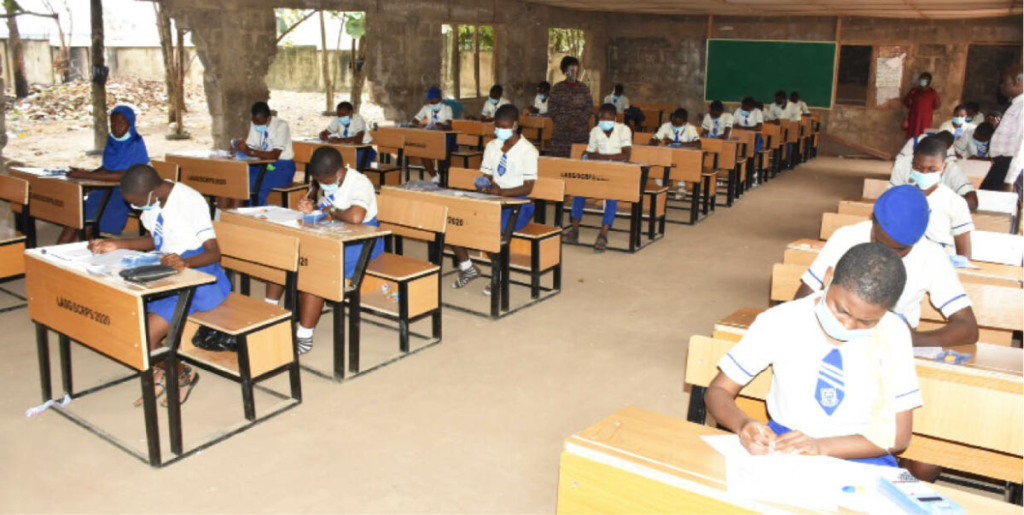
The recent decision by the West African Examinations Council (WAEC) to review the 2025 West African Senior School Certificate Examination (WASSCE) results has sparked outrage among students, parents, and education stakeholders. This controversial move comes after the examination body released what is being hailed as the worst set of results in over a decade, prompting widespread dissatisfaction across Nigeria.
A Shocking Turn of Events
The results, unveiled on Monday, revealed a dismal performance, with only 38.32%—representing 754,545 candidates—securing credits in at least five subjects, including the crucial English Language and Mathematics. For many, the mass failure in English Language became a catalyst for the decision to review the results.
In a statement issued by WAEC, the examination body attributed the review to “technical glitches” experienced during the post-exam processing of results, particularly in subjects where a paper serialization system was introduced to curb examination malpractice.
“We embarked on an innovation (paper serialization) already deployed by a national examination body. This method, used in subjects like Mathematics, English Language, Biology, and Economics, encountered unforeseen technical issues,” WAEC explained. The glitches reportedly led to problems with the online result-checking system, rendering many results inaccessible. WAEC assured candidates that these issues would be rectified within 24 hours and advised those who had already checked their results to do so again after the corrections.
Government and Ministry React
The Federal Ministry of Education swiftly confirmed the glitch, commending WAEC’s quick response to the issue. The ministry expressed its commitment to maintaining the integrity of the examination process and reassured the public that the updated results would soon be available on the result-checker portal.
“The glitch affected some subjects where paper serialization was implemented, but WAEC’s transparency and professionalism have been commendable,” the Ministry stated. The Ministry also reiterated its plans for a major overhaul, with Computer-Based Testing (CBT) to be introduced in phases starting in November 2026, aimed at strengthening the credibility of the examination system.
Mixed Reactions from Stakeholders
However, the decision to review the results has not been well received by all. Several parents voiced their concerns, with some viewing the move as an attempt to cover up systemic failures within the education sector. Mr. Samuel Ese, a concerned parent, criticized the review as “the dumbest move,” suggesting that students should be held accountable for their performance.
“Those who have failed, have failed. They should go back and rewrite the exams. You shouldn’t try to manipulate the system,” Mr. Ese said. Another parent, Mrs. Benedicta Godsple, echoed similar sentiments, stating that rather than reviewing results, the government should focus on improving the educational system to prevent such widespread failures in the future.
On the other hand, some parents, like Malam Aminu Ahmad, expressed hope that the review process would be fair and transparent. “Even if they eventually review it, I believe my daughter’s results, which are excellent, will remain unchanged,” he remarked.
Private Schools Lament the Results
The National Association of Proprietors of Private Schools (NAPPS) condemned the results, particularly noting that many students in private institutions who had achieved excellent scores in most subjects failed in English Language. Dr. Kayode Adeyemi, the association’s National Secretary, criticized the hasty release of results without adequate verification, stating, “Quite a number of our students’ results were not okay, particularly the English Language. This review should have been done before the public release.”
Adebayo Alomaja, an education consultant, raised concerns over WAEC’s use of the term “technical glitches,” referencing the cybercrime risks that could have affected the results. “Was WAEC hacked? We need a proper explanation for these issues,” he demanded.
A Call for Reform in the Education System
Tobi Kareem, a tutorial center owner, lamented the impact of the results on students’ futures, particularly those who had achieved outstanding grades in multiple subjects but failed English Language. He stressed that the integrity of the examination system must be upheld, and that the “technical glitch” excuse was not enough to restore confidence in the system.
Students who sat for both WAEC and NECO exams have turned their focus toward NECO results, hoping for better outcomes. Malam Shehu Bello Kawo, a father whose son also sat for NECO, expressed his hope that the NECO results would be more favorable, adding that such issues should not be occurring in the first place.
The Way Forward
Despite the outcry, some students have welcomed the review process, hoping it will address what they view as the worst results in WAEC’s history. For others, like Abubakar Adamu, the fear is that the review may negatively impact those who have already qualified for university admission.
WAEC’s decision to pause access to the 2025 results on its portal has also added to the anxiety, but the council has reassured the public that the issue will be resolved within 24 hours.
As the education sector navigates this crisis, experts agree that the integrity of the examination process must be safeguarded. With upcoming reforms in the form of CBT and stricter monitoring systems, many hope that this glitch will be a turning point in the fight against examination malpractice and the restoration of public trust in Nigeria’s educational framework.
